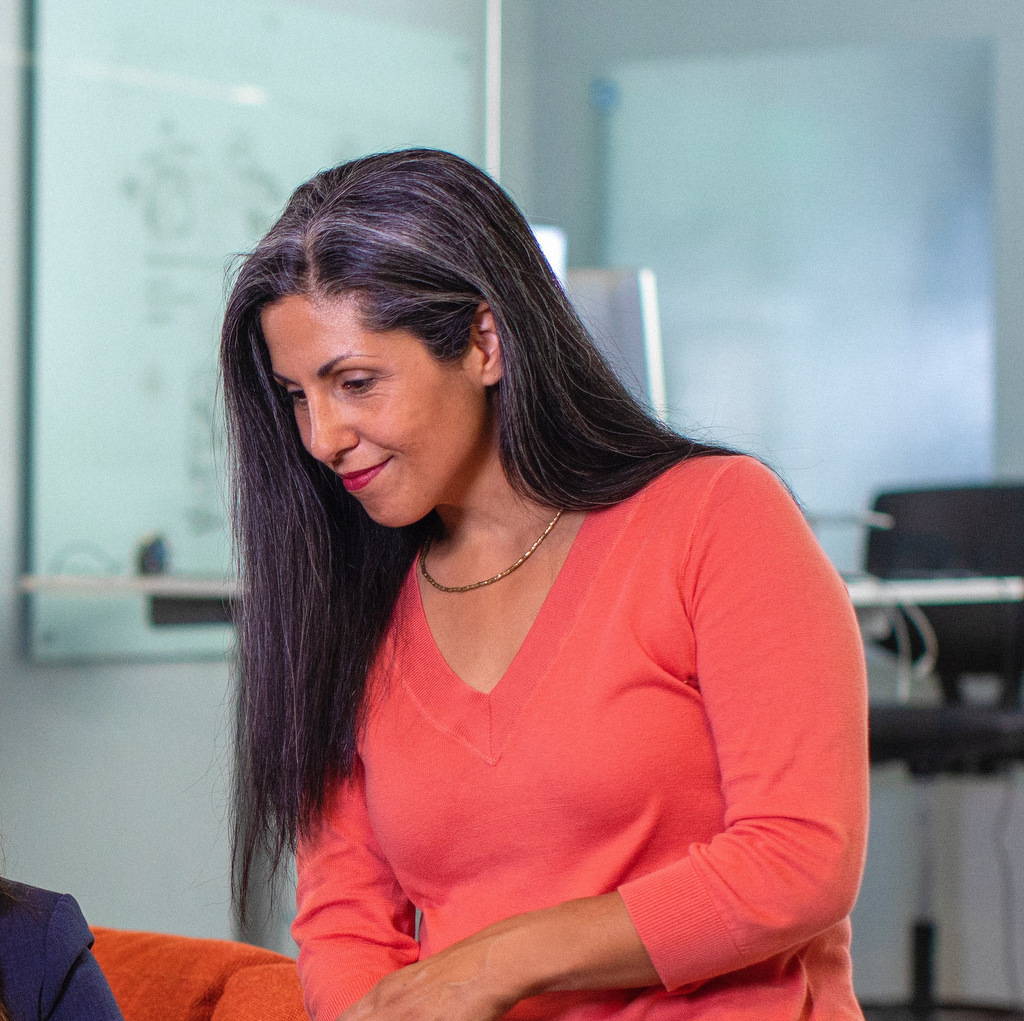How to Adapt your Interview Style for Different Subjects
These FAQs address the most common questions that people may have when it comes to planning, preparing for, conducting, and analysing interviews for various purposes. These FAQs are applicable to a wide range of industries and situations, such as academic research, radio broadcasting, podcast or webinar hosting, journalism, job interviews, and many others. The information provided also delves into specific aspects of the interview process, including planning for individual or group/focus group interviews, important considerations during interviews, effective questioning techniques and building rapport with interviewees, different interview styles, and the steps to review and interpret the outcomes after the interview has taken place.
How Can I Adapt My Interviewing Style for Different Types of Subjects?
In the ever-evolving world of interviews, it is essential to acknowledge that not all interview subjects are created equal. Interview styles play a pivotal role in how effectively you can extract valuable information and insights from your subjects. Whether you are a researcher, journalist, podcaster, or a human resource manager, the ability to adapt your interview style to different subjects is a skill that can make or break the success of your interviews. In this article, we will explore the nuances of interview styles and provide valuable insights on how to tailor your approach to varying subjects.
What Are Interview Styles?
Before diving into the specifics of adapting your interviewing style, let’s start by defining what interview styles actually are. Interview styles refer to the techniques and approaches used by interviewers to elicit information and engage with their subjects. These styles can be tailored to the specific nature of the subjects being interviewed, whether they are experts in their field, everyday people, or individuals with unique perspectives.
Now, let’s delve into the content, where we’ll discuss 10 key subtopics that will guide you in adapting your interview style for different subjects, along with examples of strategies and steps to create a strong rapport with interviewees.
Top 10 Interview Style Steps
#1 Understanding Your Subject’s Background
Tailoring your questions and approach begins with understanding your subject’s background. For instance, if you’re interviewing a renowned scientist, familiarise yourself with their work and contributions to engage them effectively. To truly excel in your interview style, delving into your subject’s background is paramount. It’s not merely about skimming their latest work or a brief Wikipedia page overview.

When interviewing a renowned scientist, your understanding should extend to their most notable research, their influences, and the significance of their work in their field. What are their key publications? What ground-breaking discoveries have they made? Gaining this deeper insight allows you to craft questions that not only engage but also demonstrate your genuine interest in their contributions.
Consider this: Before sitting down with a prominent physicist, delve into their research papers, understand their theories, and be prepared to discuss their academic journey. By doing so, you’ll not only show respect for their expertise but also create a meaningful dialogue around their life’s work.
#2 Choosing the Right Tone
The tone of your interview should match the subject matter. If you’re interviewing a grieving individual, a compassionate and empathetic tone is essential.
The importance of tone in interviews cannot be overstated. When speaking to someone who is grieving, adopting a compassionate and empathetic tone is not merely essential; it’s a fundamental human obligation. It’s not just about what you say; it’s about how you say it.
Empathy extends beyond words. It means offering a comforting presence, a warm and understanding voice, and a willingness to give your subject the space to express their feelings. Consider the power of silence in such interviews; sometimes, allowing moments of reflection can be more comforting than constant chatter. Your tone should be a reassuring embrace, showing your subject that you are there to listen, to empathize, and to support.
#3 Research and Preparation
Thorough research is crucial to ask informed and relevant questions. Prepare a list of well-thought-out questions based on your subject’s expertise or experiences.
Thorough research and preparation are the backbone of a successful interview. It’s not merely about knowing a few facts; it’s about diving deep into your subject’s world. If you’re about to interview an astronaut, you should understand the challenges of space travel, the details of their missions, and the physical and mental demands of their profession.
Create a list of well-thought-out questions that reflect this in-depth research. These questions should not be general and predictable; they should be tailored to your subject’s expertise or experiences. For instance, instead of asking, “What’s it like to be an astronaut?” you could ask, “Can you describe the most challenging moment you faced during your spacewalk and how you overcame it?” The latter not only reflects your preparation but also invites your subject to share a unique and insightful perspective.
#4 Open-Ended vs. Closed-Ended Questions
Adapt the type of questions you ask based on your subject. Experts might benefit from open-ended questions that encourage in-depth responses, while concise closed-ended questions could work for time-sensitive interviews.
The choice between open-ended and closed-ended questions depends on your subject and the interview’s goals. When interviewing experts or individuals with extensive knowledge in a particular field, open-ended questions can be your best tool. These questions encourage in-depth responses, allowing your subject to delve into their thoughts and share valuable insights.
For instance, if you’re interviewing a renowned economist, you could ask, “What economic trends do you foresee in the next decade, and how might they impact society?” This question gives the expert room to provide a comprehensive analysis.
Conversely, closed-ended questions are useful in time-sensitive interviews or when seeking specific information. In a political debate, for instance, a concise closed-ended question like, “Do you support this policy change?” can elicit a straightforward response.
Remember, the art lies in balancing these question types and tailoring them to your subject’s background and the context of the interview.
#5 Active Listening
Engage in active listening by paying close attention to your subject’s responses. Show that you value their input, which can help build rapport.
Active listening is not just about hearing words; it’s about understanding the nuances, emotions, and context behind those words. When your subject speaks, be fully present. Maintain eye contact, nod in agreement, and offer verbal cues like “I see” or “Tell me more” to demonstrate your engagement.

It’s essential to create an environment where your subject feels that their words are valued. Encourage them to expand on their thoughts and feelings. By actively listening, you not only gain a deeper understanding of their perspective but also build a rapport founded on respect and attentiveness.
#6 Empathy and Emotional Intelligence
When interviewing subjects sharing personal experiences or emotions, it’s essential to demonstrate empathy and emotional intelligence. Empathising with their feelings can foster trust.
Empathy is a powerful tool, especially when interviewing subjects who share personal experiences or emotions. It’s not just about understanding their feelings; it’s about sharing in those feelings. When your subject expresses grief, happiness, or vulnerability, your ability to connect with their emotions can foster a profound sense of trust and openness.
Consider this: If you’re interviewing a survivor of a natural disaster, expressing empathy through statements like “I can’t imagine what you went through, but I’m here to listen” can create a strong emotional connection. Emotional intelligence is equally vital; it allows you to navigate sensitive topics with care and delicacy.
#7 Cultural Sensitivity
Be aware of cultural nuances when interviewing subjects from diverse backgrounds. Sensitivity and respect for cultural differences are key.
In our increasingly globalised world, interviews often span cultures and backgrounds. Cultural sensitivity is not an option; it’s a requirement. When interviewing subjects from diverse backgrounds, take the time to research and understand their cultural nuances. This goes beyond mere courtesy; it’s about respecting the values, traditions, and customs of your subjects.
For instance, if you’re interviewing a representative from a different culture, research their customs and practices. Greet them in a culturally appropriate manner, and be prepared to engage in discussions that are considerate of their cultural sensitivities. Your efforts in this regard will not only be appreciated but also foster a comfortable and open interview environment.
#8 Body Language and Non-Verbal Cues
Pay attention to your own body language and your subject’s non-verbal cues. This can help you gauge their comfort level and adjust your interview style accordingly.
Your body language is a significant component of effective interviews. Your posture, gestures, and expressions can either put your subject at ease or create tension. Likewise, paying attention to your subject’s non-verbal cues is invaluable.

When interviewing, maintain an open and inviting posture. Lean forward slightly to show interest and make eye contact to convey engagement. Be aware of your facial expressions; a warm smile can work wonders in building rapport.
Simultaneously, observe your subject’s body language. If they appear uncomfortable or tense, consider adjusting your interview style to make them feel more at ease. Sometimes, mirroring your subject’s body language can establish a stronger connection. Remember, the unspoken language is just as important as the spoken word.
#9 Flexibility and Adaptation
Be ready to adapt your interview style on the fly. Subjects may react differently than expected, so flexibility is a valuable skill.
While thorough preparation is crucial, flexibility is equally vital. In interviews, subjects may react differently than expected. They may reveal unexpected information or emotions. As an interviewer, your ability to adapt to these changing dynamics is a valuable skill.
Imagine you’re conducting an interview with a celebrity who suddenly decides to share a deeply personal experience. In such moments, being open to the shift in conversation and offering support can lead to a more genuine and memorable interview.
Flexibility extends to your question structure as well. If a line of questioning isn’t yielding the desired insights, be ready to pivot and explore other avenues. Being adaptable allows you to extract the most valuable information from your subjects.
#10 Building Trust
Building trust is the foundation of a successful interview. Share your intentions, maintain transparency, and assure confidentiality when necessary.
Building trust is not just a step in the interview process; it’s the foundation of a successful interview. Trust is the bridge that connects you and your subject, enabling them to open up and share their insights.
To build trust, it’s essential to be transparent about your intentions and the purpose of the interview. Assure your subject of confidentiality when necessary and demonstrate your commitment to using their words with integrity.
Remember that trust takes time to develop. It’s not built solely through words but through your actions and consistency. Treat your subjects with respect and dignity throughout the interview process, and the trust you establish will lead to more fruitful and candid conversations.
Key Interview Style Tips
- Understanding your subject’s background is essential for tailoring your questions effectively.
- Active listening and empathy are critical for building rapport with your interviewees.
In the dynamic world of interviews, the ability to adapt your interview style to different subjects is a priceless skill. As you embark on your journey of engaging with various subjects, remember the core principles of research, preparation, empathy, and flexibility. These principles are universal and can be applied across a spectrum of interview subjects.
Furthermore, building trust is a cornerstone of successful interviews. When your subjects feel valued, heard, and respected, they are more likely to open up and share valuable insights.
In conclusion, interview styles are not one-size-fits-all; they must be tailored to suit your subject matter and the nature of your subjects. Embrace the challenge, adapt your approach, and watch your interviews become more insightful and impactful.
Useful Resources
To further enhance your interview style skills, you can explore the following resources:
Way With Words is an excellent platform for professional interview transcription services, offering high accuracy and efficiency. This can be a valuable resource to assist with your interview-related requirements.
Harvard Business Review offers insightful articles and guides on effective interviewing techniques and strategies.
Poynter is a reputable source for journalism and media-related resources, including tips on conducting interviews.
